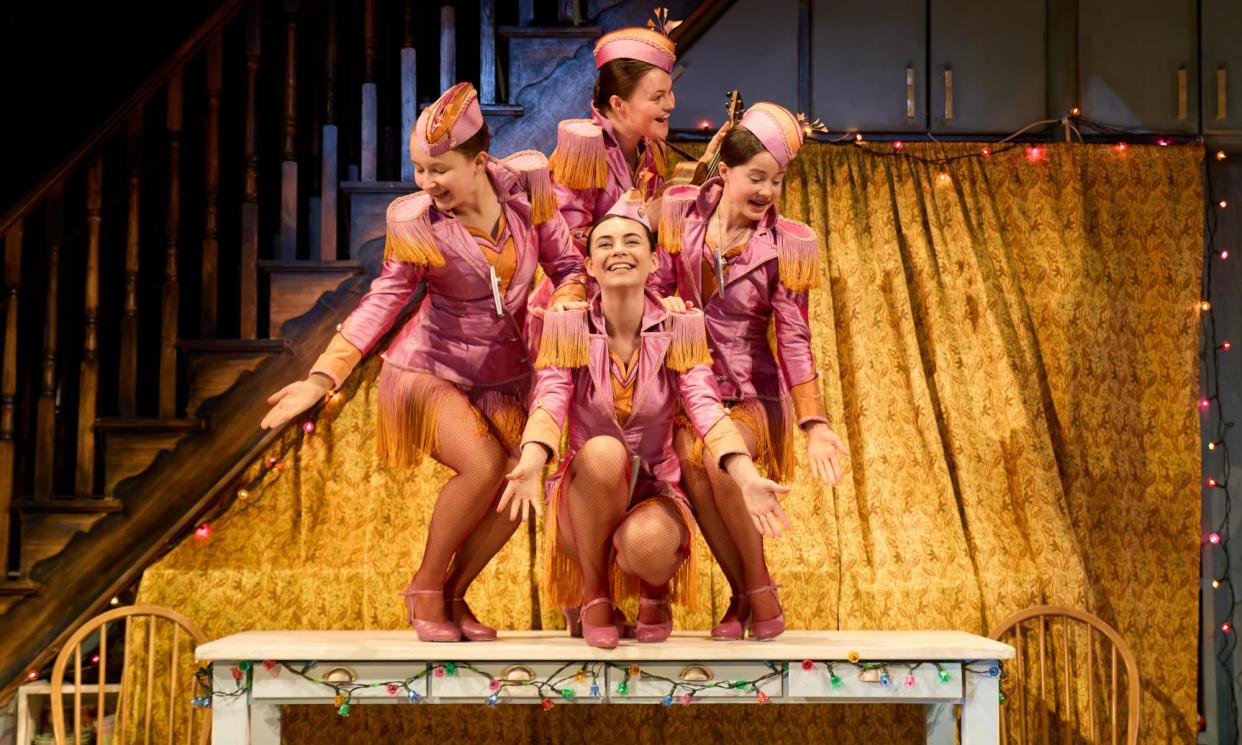The Hills of California review – Jez Butterworth’s fractious family of singing sisters

Jez Butterworth’s Jerusalem is often cited as the best play of the century but for outliers who think of The Ferryman as a better work, this play comes with all the hope (and pressure) of the same wondrous alchemy. There are several similar components to that 2017 drama as Butterworth reunites with director Sam Mendes and actor Laura Donnelly (who is also Butterworth’s partner). Like the roots of The Ferryman, based on the disappearance of Donnelly’s uncle during the Troubles in 1981, The Hills of California also has a personal foundation, this time in Butterworth’s family.
The story features a dying mother whose four daughters gather at her Blackpool home in the heatwave of 1976 to say their goodbyes. Butterworth has spoken of his sister’s death from brain cancer in 2012 and although this is not her story, sibling grief is clear in the sisters’ fighting and apportioning guilt or blame. It is in these moments that the play feels most alive. Butterworth refreshingly centres female lives but overall it is an uneven drama, baggy in its pacing.
The set, like the story, swivels between past and present, with a parallel cast showing the daughters as girls being groomed by their mother Veronica (Donnelly), to become the Webb Sisters, a musical act in the mould of the Andrews Sisters. When a big-time American agent comes to town, Veronica sees an opportunity but it comes at a high price for this family.
The sisters, in the now, enter one by one. There is Jill (Helena Wilson), her mother’s carer, who looks like a librarian. Ruby (Ophelia Lovibond) is bored in her life and then panicky with strangely under explained fits. Gloria (Leanne Best) is the most successful creation, arriving like a shrieking whirl of resentment, and broiled in jealousy, throwing out one verbal grenade after another at anyone within range.
Joan (also played by Donnelly in her adult incarnation) is the only sister who has managed to strike out and get to California. She hasn’t returned home in years, nor has she answered her mother’s 100-plus letters. Joan has assured Jill she will come back to Blackpool but is like a glamorous Godot for most of the play, which pivots around her absence. She enters in a peculiar third act, wearing an Afghan coat and resembling a Carole King tribute act.
When these characters fight, they come to pained life, but more often they are too flat. The dying Veronica remains off stage but we see her younger counterpart in the past, with too many touches of Mary Poppins – immaculately dressed, kind but severe in maternal strictness, lining up her daughters for songs around the piano or kitchen table in scenes which look like twee tableaux of the Pears soap adverts from the 1950s.
We do not get a larger sense of her power because an overbearing plot – involving child sexual abuse and a surprise baby – takes over, flattening out the emotional depths that might have been drawn from grief, forgiveness, redemption and life’s failures for these unforgivingly disappointed women. As a portrait of complicated sisterhood, Beth Steel’s wedding drama Till the Stars Come Down, at the National Theatre, has so much more soul and spirit.
There are lovely bits nonetheless including effervescent verbal riffs and snatches of song, although sentimentality and nostalgia soften the edges. Butterworth is reaching for the epic and there is a characteristic daring in that ambition but Rob Howell’s gorgeous set, dominated by a beautiful staircase, has heights and depths that the play itself does not reach.
• At the Harold Pinter theatre, London, until 15 June.

 Yahoo News
Yahoo News 
